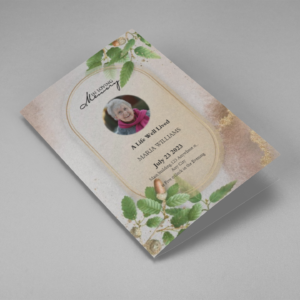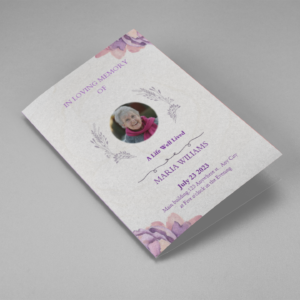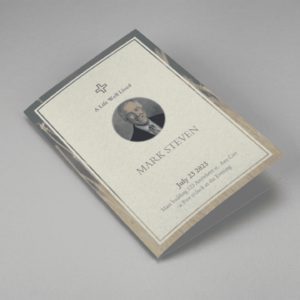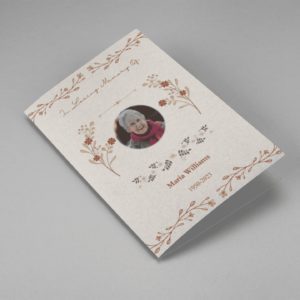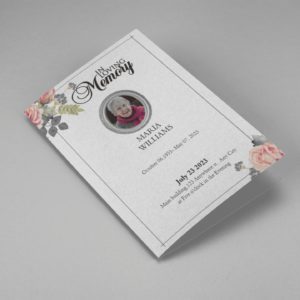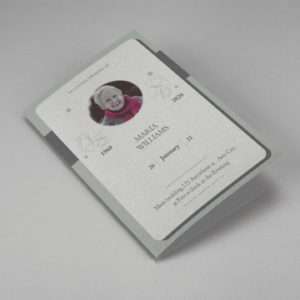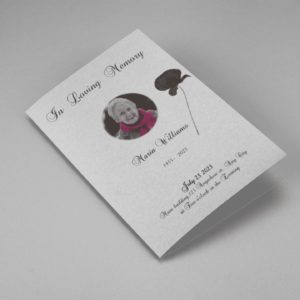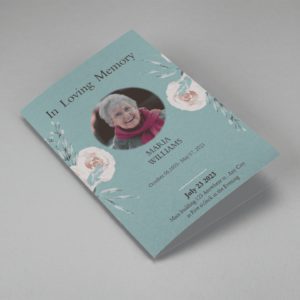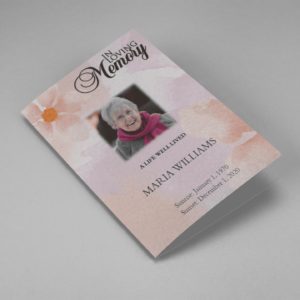Creating an obituary is one of the most important aspects of planning a memorial service. It serves as a tribute to the life lived and a way to share the deceased’s story with others. A well-designed Obituary Layout ensures that important details about your loved one are shared with family, friends, and the community.
What is an Obituary?
An obituary is a written announcement of someone’s passing, often including details about their life, family, achievements, and the funeral service. It serves as both a public announcement and a personal tribute, capturing the essence of the person who has passed away.
The layout of an obituary plays a crucial role in how this tribute is presented. A well-structured and thoughtful design not only informs but also helps commemorate the life of the deceased in a respectful manner.
Key Elements of an Obituary Layout
When crafting an obituary layout, it is important to ensure that all necessary details are included. Here are the essential elements to consider:
1. Header (Name and Dates)
The header typically includes the full name of the deceased, including any nicknames or maiden names, followed by their birth date and date of passing. This simple, clear information helps to identify the individual right away.
Example: Johnathan Edward Smith Born: March 15, 1945 Died: October 8, 2024
2. Introduction
The introduction should provide a brief summary of the person’s life. It’s often written in the third person and should include a statement about the individual’s passing.
Example: It is with great sadness that we announce the passing of Johnathan Edward Smith, a devoted husband, father, and friend. John passed away peacefully on October 8, 2024, surrounded by his loving family.
3. Biographical Information
This section provides more in-depth information about the deceased’s life. Key details may include:
- Birthplace and Early Life: Where they were born and raised.
- Education and Career: Schools attended, degrees earned, and career highlights.
- Family: Spouse, children, grandchildren, and other close family members.
- Hobbies, Interests, and Achievements: Unique qualities, hobbies, and significant achievements that defined the person’s life.
Example: John was born in Portland, Oregon, and attended Lincoln High School before earning his degree in engineering from Oregon State University. He spent 40 years working at Oregon Electric Co., where he made many lifelong friends. John loved the outdoors, especially fishing and hiking with his family.
4. Survivors and Predeceased
Listing survivors and those predeceased is a common practice. This section names close family members, including parents, spouses, children, and siblings. It also mentions any significant individuals who preceded the deceased in death.
Example: John is survived by his wife, Elizabeth, his three children, Michael, Sarah, and Emily, and his six grandchildren. He is preceded in death by his parents, Thomas and Martha Smith.
5. Service Details
The obituary should include information about the funeral or memorial service, including the date, time, and location. If the family prefers donations in lieu of flowers, this can also be mentioned.
Example: A memorial service will be held on October 15, 2024, at 11:00 AM at Grace Memorial Chapel, Portland. In lieu of flowers, the family requests donations be made to the Oregon Environmental Fund.
Designing the Obituary Layout
Once the content of the obituary is crafted, it’s time to think about the design. A professional and visually appealing layout will help communicate the message effectively.
1. Typography
Choose a legible font that conveys a sense of dignity and respect. Serif fonts, such as Times New Roman or Georgia, are commonly used for formal obituary layouts. You may want to use different font sizes for headings, such as the name, birth, and death dates, to make them stand out.
2. Images
Including a photo of the deceased is a common practice. A smiling portrait that captures the essence of the individual is typically used. You may also choose to add additional images, such as family photos or pictures of the person engaging in their favorite activities.
3. Spacing and Margins
A well-spaced layout with appropriate margins creates a sense of clarity and ease of reading. Ensure that there’s enough white space between paragraphs to make the obituary visually appealing.
4. Borders and Decorations
Some obituary layouts use simple borders or lines to separate sections or add an elegant touch. Soft colors, such as pastel blues, grays, or creams, can enhance the design without being distracting.
Sample Obituary Layouts
Below are a few sample obituary layouts to inspire your own design:
1. Traditional Obituary Layout
A traditional layout features the deceased’s name at the top, followed by a formal obituary section that includes biographical details, family information, and service details. This layout is simple, respectful, and often used in printed newspapers or programs.
Format:
- Name: Centered at the top
- Dates: Birth and death dates just below the name
- Main Body: Introduction, biographical information, survivors, and predeceased listed in paragraphs
- Service Information: At the bottom, with any donation requests.
2. Modern Digital Obituary Layout
For online platforms, a modern design might include embedded images, multimedia links, and a more flexible layout. These obituaries are often hosted on memorial websites, allowing visitors to leave comments or memories.
Format:
- Name and Dates: Centered or left-aligned
- Photo Gallery: Images of the deceased, family, or significant moments in life
- Biography: Less formal, with subheadings for different sections of the person’s life (e.g., “Early Life,” “Career,” “Family Life”)
- Interactive Elements: Links to donation pages or memorial videos.
3. Minimalist Layout
For those who prefer a simple design, a minimalist layout with black-and-white text and limited decorative elements is a tasteful option. This layout is typically used for private services or when the family opts for a more understated tribute.
Format:
- Name and Dates: At the top, in bold
- Main Text: A single, flowing paragraph that covers the person’s life and service information
- No Images: Focus on text without any visual elements
- Simple Borders: Thin lines to separate sections
Tips for Crafting an Obituary Layout
- Be concise but personal: Share important details about the deceased’s life but keep the text focused and respectful.
- Use templates: Many funeral homes and online services offer obituary templates that can help you organize the information clearly.
- Proofread carefully: Double-check names, dates, and other information to avoid any errors.
- Collaborate with family: If you’re not the only one involved in creating the obituary, work with other family members to ensure everyone feels represented in the tribute.
Creating an obituary is both an emotional and practical task, one that helps preserve the memory of a loved one while informing others about the memorial service. A well-structured layout ensures that the obituary is both easy to read and meaningful, honoring the life of the person who has passed away. By following these guidelines and examples, you can craft a beautiful, lasting tribute to your loved one.
Funeral Obituary Templates
-
Searching for a Oak Leaf With Gold Oval Frame Half Page Funeral Program that is easy to print and amass and has a cutting-edge look? The Oak Leaf With Gold Oval Frame Half Page Funeral Program is the Perfect decision because it measures 8.5”x 5.5”.
- No Limitation on Content, Edit anything
- Edit anytime – unlimited revisions even after purchased
- Get a printable PDF downloaded to get it printed on your own.
-
Searching for a Brown and White Classic Funeral Program Half Page Program that is easy to print and amass and has a cutting-edge look? The Brown and White Classic Funeral Program Half Page Program is the Perfect decision because it measures 8.5”x 5.5”.
- No Limitation on Content, Edit anything
- Edit anytime – unlimited revisions even after purchased
- Get a printable PDF downloaded to get it printed on your own.
-
Searching for a Purple Elegant Watercolor Half Page Funeral Program Template that is easy to print and amass and has a cutting-edge look? The Purple Elegant Watercolor Half Page Funeral Program Template is the Perfect decision because it measures 8.5”x 5.5”.
- No Limitation on Content, Edit anything
- Edit anytime – unlimited revisions even after purchased
- Get a printable PDF downloaded to get it printed on your own.
-
Searching for a Cream and Green Photo Obituary Half Page Program that is easy to print and amass and has a cutting-edge look? The Cream and Green Photo Obituary Half Page Program is the Perfect decision because it measures 8.5”x 5.5”.
- No Limitation on Content, Edit anything
- Edit anytime – unlimited revisions even after purchased
- Get a printable PDF downloaded to get it printed on your own.
-
Searching for a Cream Simple Elegant Photo Church Half Page Program that is easy to print and amass and has a cutting-edge look? The Cream Simple Elegant Photo Church Half Page Program is the Perfect decision because it measures 8.5”x 5.5”.
- No Limitation on Content, Edit anything
- Edit anytime – unlimited revisions even after purchased
- Get a printable PDF downloaded to get it printed on your own.
-
Searching for a Samovar Silver Half Page Funeral Program Template that is easy to print and amass and has a cutting-edge look? The Samovar Silver Half Page Funeral Program Template is the Perfect decision because it measures 8.5”x 5.5”.
- No Limitation on Content, Edit anything
- Edit anytime – unlimited revisions even after purchased
- Get a printable PDF downloaded to get it printed on your own.
-
Searching for an Elegant Beige Half Page Funeral Program Template that is easy to print and amass and has a cutting-edge look? The Elegant Beige Half-Page Funeral Program Template is the Perfect decision because it measures 8.5”x 5.5”.
- No Limitation on Content, Edit anything
- Edit anytime – unlimited revisions even after purchased
- Get a printable PDF downloaded to get it printed on your own.
-
Searching for a White Floral Pro Half Page Funeral Program Template that is easy to print and amass and has a cutting-edge look? White Floral Pro Half Page Funeral Program Template is the Perfect decision because it measures 8.5”x 5.5”.
- No Limitation on Content, Edit anything
- Edit anytime – unlimited revisions even after purchased
- Get a printable PDF downloaded to get it printed on your own.
-
Searching for a Grey and Burgundy Elegant Half Page Funeral Program Template that is easy to print and amass and has a cutting-edge look? Grey and Burgundy Elegant Half Page Funeral Program Template is the Perfect decision because it measures 8.5”x 5.5”.
- No Limitation on Content, Edit anything
- Edit anytime – unlimited revisions even after purchased
- Get a printable PDF downloaded to get it printed on your own.
-
Searching for a Soft Green and Grey Minimalist Floral Half Page Funeral Program Template that is easy to print and amass and has a cutting-edge look? Soft Green and Grey Minimalist Floral Half Page Funeral Program Template is the Perfect decision because it measures 8.5”x 5.5”.
- No Limitation on Content, Edit anything
- Edit anytime – unlimited revisions even after purchased
- Get a printable PDF downloaded to get it printed on your own.
-
Searching for a Gray Elegant Oval Frame Half Page Funeral Program Template that is easy to print and amass and has a cutting-edge look? Gray Elegant Oval Frame Half Page Funeral Program Template is the Perfect decision because it measures 8.5”x 5.5”.
- No Limitation on Content, Edit anything
- Edit anytime – unlimited revisions even after purchased
- Get a printable PDF downloaded to get it printed on your own.
-
Searching for a Blue Organic Minimal Half Page Funeral Program Template that is easy to print and amass and has a cutting-edge look? Blue Organic Minimal Half Page Funeral Program Template is the Perfect decision because it measures 8.5”x 5.5”.
- No Limitation on Content, Edit anything
- Edit anytime – unlimited revisions even after purchased
- Get a printable PDF downloaded to get it printed on your own.
-
Searching for a Pink and Orange Watercolour Half Page Funeral Program Template that is easy to print and amass and has a cutting-edge look? Pink and Orange Watercolour Half Page Funeral Program Template is the Perfect decision because it measures 8.5”x 5.5”.
- No Limitation on Content, Edit anything
- Edit anytime – unlimited revisions even after purchased
- Get a printable PDF downloaded to get it printed on your own.
-
Searching for a Pink Floral Paper Half Page Funeral Program Template that is easy to print and amass and has a cutting-edge look? Pink Floral Paper Half Page Funeral Program Template is the Perfect decision because it measures 8.5”x 5.5”.
- No Limitation on Content, Edit anything
- Edit anytime – unlimited revisions even after purchased
- Get a printable PDF downloaded to get it printed on your own.
Funeral Programs : Helping Videos
Frequently Asked Question On Sample Obituary Layouts
What is a sample obituary layout?
A sample obituary layout is a pre-designed template that provides structure for writing an obituary. It includes sections such as the deceased’s personal information, family details, life achievements, and a summary of their life. These layouts help guide you through the process of creating a well-organized and respectful tribute.
How can I customize a sample obituary layout?
You can customize a sample obituary layout by editing the text to include specific details about the deceased’s life. Most layouts allow you to change fonts, colors, and images to personalize the obituary according to the preferences of the family or cultural traditions.
Can I add photos to the obituary layout?
Yes, most sample obituary layouts include a designated space for photos of the deceased. You can add one or multiple photos, depending on the design of the template. Photos add a personal touch and can make the obituary more memorable.
Are sample obituary layouts free to use?
Some sample obituary layouts are available for free, while others may require a purchase or subscription to access premium designs. Free templates often come in basic formats, while paid options may offer more customization features and professional designs.


